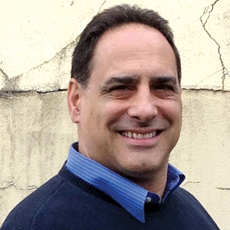
Everyone may have his or her own variation of what these terms mean but most will in some way, shape, or form align with the true definition.
Leadership: the action of leading a group of people or an organization
Leader: one who shows influence over others, one who takes charge to champion a cause
Mentor: one who advises, trains, or shows positive interest in another
Day in and day out, people are focused on their daily routine. They take care of what they need to do and sometimes don’t look further than their current role. No matter whom we are or what our career, we all need leaders and mentors both privately and professionally in our lives. Our parents, our friends, our supervisors, our peers; these are just a few of the groups of people that represent leaders and mentors.
My guess is that we are all leaders and mentors in some capacity. My question has to do with leadership and mentorship professionally. What has been done recently to create change at work? Who has helped someone learn a new skill? Led the charge on a project? Contributed to making the workplace a better place to be?
Do we sit back and let someone else lead or mentor? If the answer is YES, no worries, we all get into a routine. We are “creatures of habit” after all; it is not too late however to become a leader and/or mentor someone in the work place.
Ask these questions:
- Why do we do what we do? Is there a better way?
- Why do we continue to do the same things over and over if we are only getting sub-par results?
- How can we motivate people to change in a positive way?
- Is this a routine and if so, is it providing positive results?
In the healthcare community, change is a daily occurrence, which is especially evident in the long-term care industry. Nurses are inundated with new regulations, policies, procedures, and products all coming at them at a rapid pace. Before they have had a chance to commit the new change to “habit”, another change is fast approaching.
Here is the question: Do we “fight the change?” Do we “blindly” accept the change? Or do we reflect on the change or do we evaluate the process and advocate for this improvement?
If we fight change we will produce stress to an already stressful situation, if we blindly accept the change we are neither in a leadership nor mentoring position; and if we reflect on the change we may worry what others think. All of this leads to stress.
Here are some suggestions to become LEADERS and MENTORS when faced with change.
Take a moment to evaluate the process, the procedure, policy, or product. Ask these questions:
- Why are we implementing this change?
- Has anyone explained the reason for the change?
- Is the change good for the patient?
- Are these changes aligned with the common goal for the patient and the company?
Ask yourself:
- How can I help implement the change?
- Can I mentor someone who may be “fighting the change?”
- Can I council someone that may be “blindly excepting the change?”
- Can I be a leader for the group?
We all have the ability to make a positive impact and step out of the daily routine – be a LEADER, be a MENTOR. With this in mind, one can be happier, more motivated, and overall energized for the healthcare challenges ahead.
Michael DeFrancesco is president of First Wave Products, creators of First Crush and whose parent company, First Wave Technologies, Inc., works with leading research institutions and universities to develop next generation medical technologies.




